Dubai, United Arab Emirates – Feather necklaces, rattles, colorful ornaments that stood out in the midst of the paths of pedestrians in the crowded Expo City, Dubai, and more than any other Conference in the Mood. Of the more than 100 million participants, according to the organization, there were about three thousand delegates, brazil and, of these, it is estimated that more than a hundred indians. A part of the delegation, arrived a week earlier, in November, to attend the 10th Meeting of the Working Group, the Facilitator of the Platform of Local Communities and Indigenous Peoples (LCIPP) of the Convention on Climate change (UNFCCC). The meeting discussed the new methods, approaches, and activities, with the aim of improving the body, designed to enhance and strengthen the role of indigenous peoples and local communities in the negotiations, and in the midst of a climate assessment of their effectiveness.
Established in the year 2015 with a unique structure among the bodies of the UNFCCC, the platform represents a major step forward for the recognition of indigenous peoples in climate change governance, and works through a working group, the facilitator (FWG), which has seven seats for the indigenous people, and a further seven for the government. The indians have achieved equality in the conditions of action in this case and can advise on technically, the Parties to the Convention. But you are still an observer, and that is still not enough.
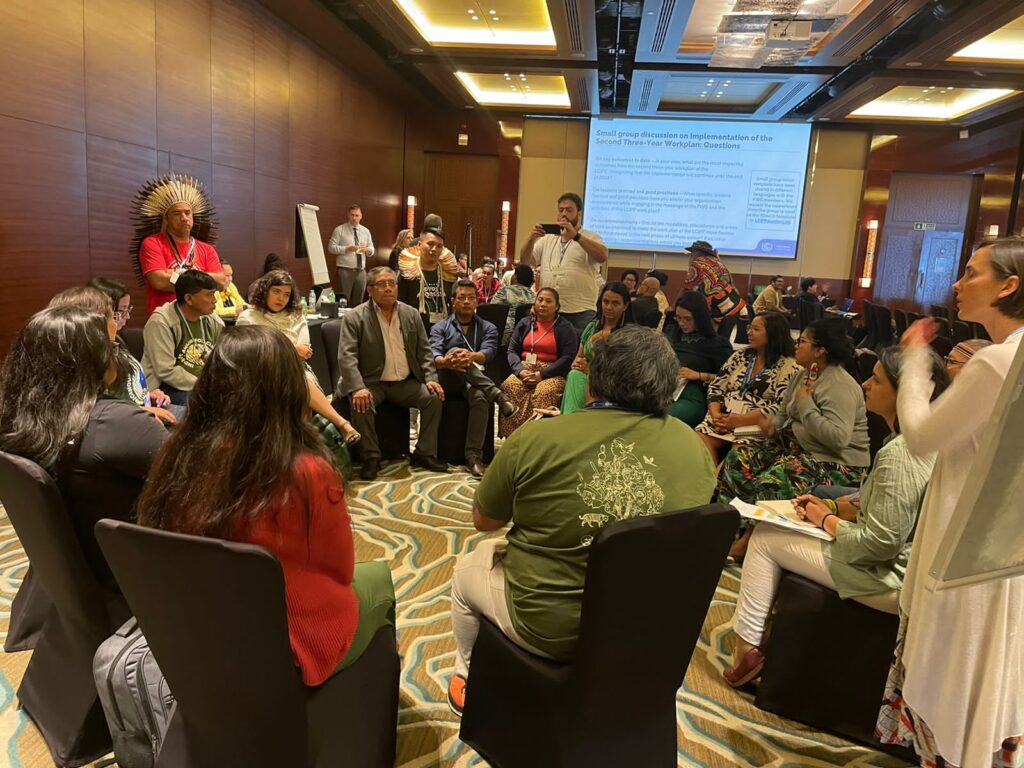
In spite of the advances made with regard to the methodology of the meetings of the platform, in order to encourage in-depth discussion in small groups, and the routing of the suggestions, in writing, in addition to the efforts to provide a translation into the language due to the ever-growing number of indigenous brazilians in the last few meetings, and weigh criticisms of the format of the meeting, to be insufficient to absorb the contributions of indigenous peoples, a new approach to the culturally-adapted.
Since a decision has been made at COP26 in Glasgow in a working group set up to implement the platform, you will go through a review in 2024 and for the contracting Parties to the Convention. It will be made from the analysis of the submissions of the observer, whose term ended on November 30, in a report, which will be presented at the Conference in Bonn in June of this year, and in the presentation of the third, a plan of work for the platform, which is in Dubai, he received suggestions from the participants.
For the indigenous people to be able to using the platform to focus on the work related to the Global Goal for Adaptation (GGA) in the Balance sheet Total (GST), in the field of finance, including the fund for any loss or damage, national adaptation plans, just transition, and other things, they suggested new ways of working within their scope, such as the joint platform of regional and global partnerships with the private sector, and the adoption of the task forces, or committees, to interact with other bodies, both inside and outside of the UNFCCC, implementation of product-specific training, and strategy for the dissemination of these products.
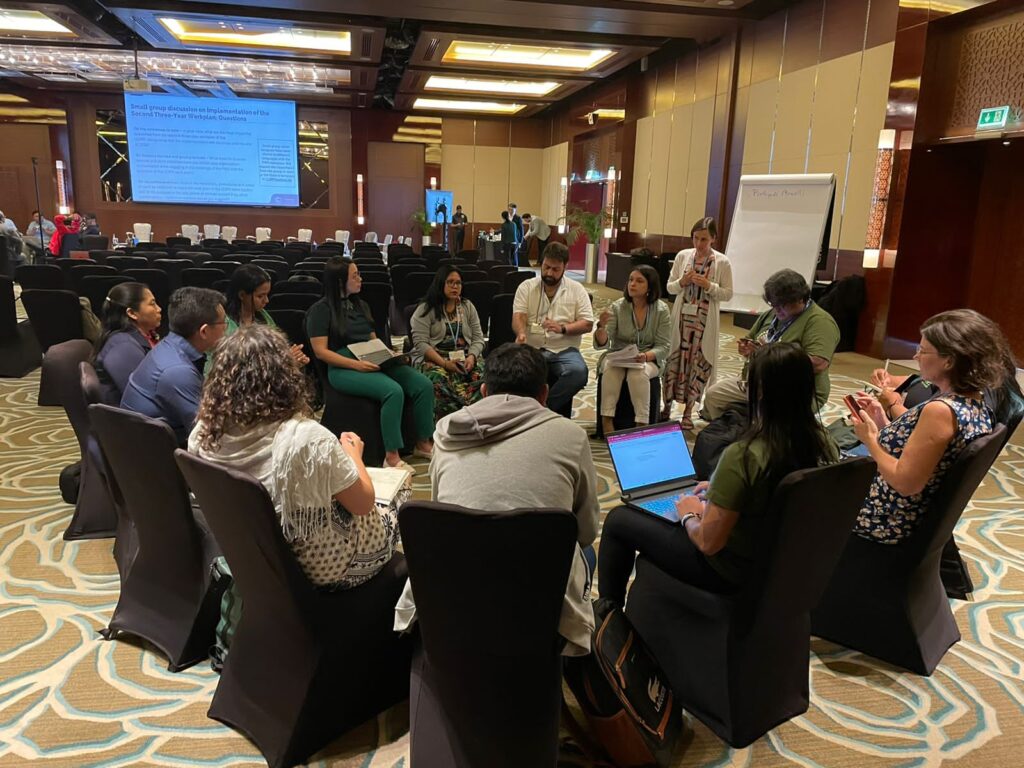
He excelled, too, of the importance of the maintenance of the meetings of regional and bi-regional relations, the annual general meeting of the holders of knowledge, and focus on the sharing of knowledge between generations, the very year sessions of the FWG and the dialogues between the Parties, and to the indigenous peoples, which has been considered to be promising. In January, 2024, all of the members of the platform are going to get together to for the cutting of the bids received, and to arrange the stock, which is listed on the work plan of the LCIPP from 2025 to 2027.
To Sineia groups intersect, the Indigenous Council of Roraima (CIR), and the national coordinator of the Indian Committee on Climate Change (CIMC), activities of the platform are required to ensure that the voice of the indigenous people you can reach all the other bodies of the UNFCCC. “The intent is to understand how people can engage with the best in the discussions on the platform, with their traditional knowledge and how it should be to report it,” he said.
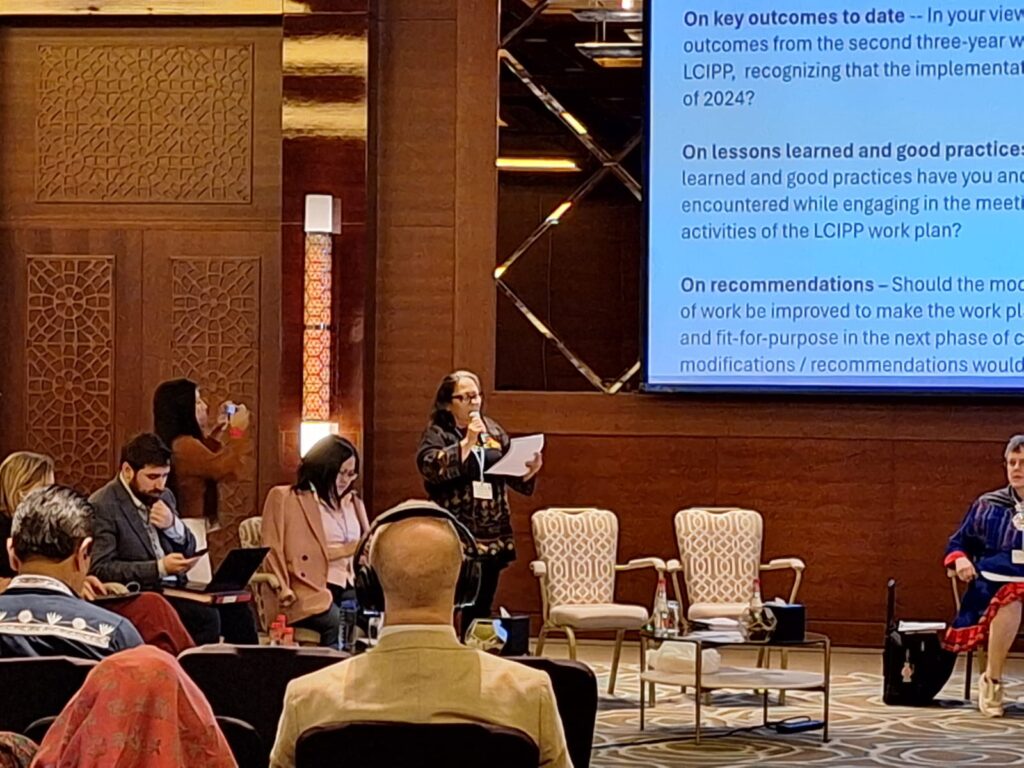
Dialogs that are running instances of the inside and outside of the Convention, such as the inter-governmental Panel on Climate Change (IPCC), are recurring activities of the platform over the course of his first two cycles of implementation, since 2019. But until now, it didn’t turn out as collaborations and effective.
“We would like to give to those in other organs in which they are asked to talk about the platform that we have a space for indigenous peoples, who are investigating, what they experience, and are the doctors in natural, in the matter of the weather. Was told that they are going to start preparing for the upcoming report of the IPCCC. There are ways to submission of the study to enrich our view of the world.”
Sineia groups intersect, the Indigenous Council of Roraima (CIR)
In Dubai, the co-chair of the Committee on the Adaptation to the UNFCCC, Mariam Allam, Egypt, according to the members and observers of the platform. It has strengthened its commitment to working with the LCIPP, acknowledging the significance and value of the knowledge systems of indigenous peoples to adapt to climate change. In practice, in collaboration with the Committee of Adjustment by means of a specific came as a referral to the formal meeting, good for the work plan for the current platform to the next.
Independent evaluation
In the wake of the building of the International Work Group for Indigenous Affairs (IWGIA), an umbrella organization for human rights, has 55 years of experience, headquartered in Denmark, has completed a study called “consolidation of the rights of indigenous peoples in climate change governance through the Platform of the Local Communities and Indigenous People,” by providing an objectively the progress and limitations in this instance, the view of the member, former member, member States and observers.
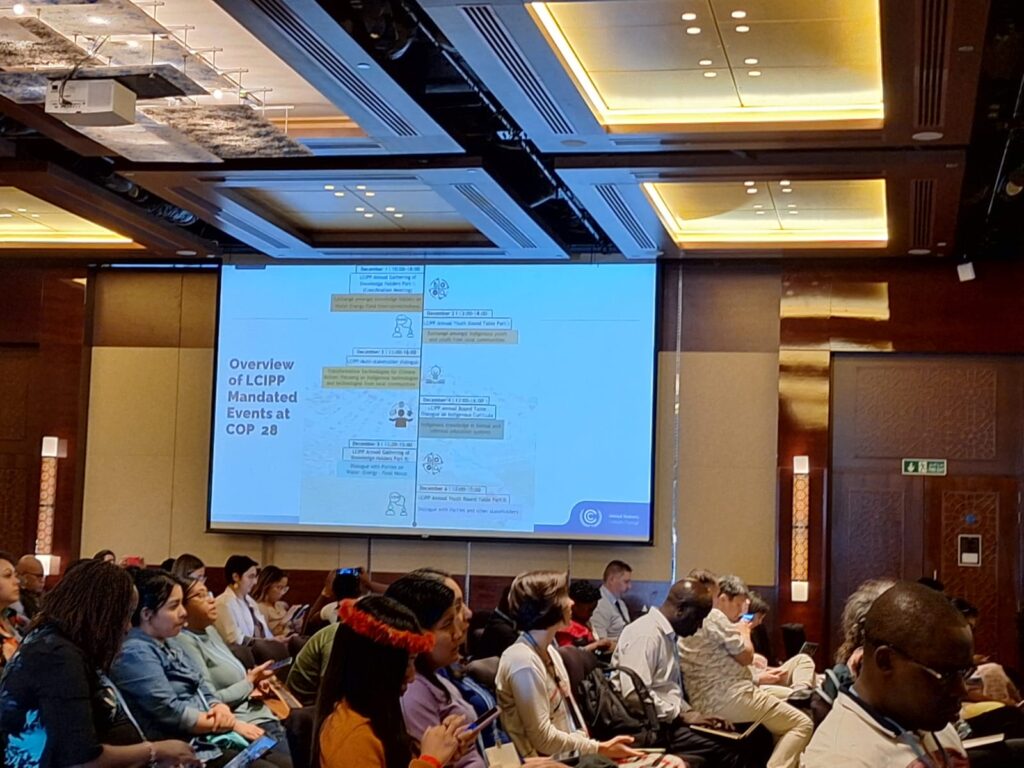
The study was conceived as a material because it recovers from the recent history of the construction of the platform, and explains how it has been in the process of the operation of the instance, you will go through the activities of the first two planes to work, to assess the terms of reference, the limitations of the platform, and the role of the secretariat of the UNFCCC on your riding style, and the involvement of the government. And, in this sense, the platform is disappointing.
Part of the problem lies in the unwillingness of governments to keep up with this schedule, it becomes restricted to the country’s historically more engaged, resulting in increased difficulty, to the claims of indigenous peoples, to take effect on the negotiation. According to the participants of the study, the involvement of the government has been passive, to a large extent. “Your silence reinforces the lack of the political will of the country to direct matters that are driving the demands for the participation of indigenous peoples, such as the discussion is about the rights, including autonomy, or the right to land, which is crucial for dealing with the vulnerability to climate change,” the report states. For Martha, Tipuici the people of the Manoki, who accompanied him to the meeting of the FWG, for the first time, I could clearly see that the problem is not only in the field of accessibility.
“We play in civil society, but if we don’t use the right of this space, you will have difficulty, as well as the platform itself has a hard time being understood by the government”.
Martha Tipuici the people of the Manoki
Another sore point is the lack of participation of local communities and the movement to abolish the use of the term “local communities” in association with and in conjunction with indigenous peoples. In the last few meetings of the platform, the topic has generated debates and positions, including the pro-for the redesign of the platform, in the context of its review process, making it a space that’s just for the indigenous population.
The study of the IWGIA also looks at the impact of the platform at the Convention, the national and local levels, drawing on the recommendations, which are, in fact, reafirmações of the claims of indigenous peoples in all the instances, such as the recognition of knowledge holders, with respect to the determination of the need for the operation of the platform as a catalyst for the strengthening of the action, and climate change governance aimed at structural changes to a more solid, engaging with the work plans of the platform in order to ensure consistency with the policies of the weather, among other things.
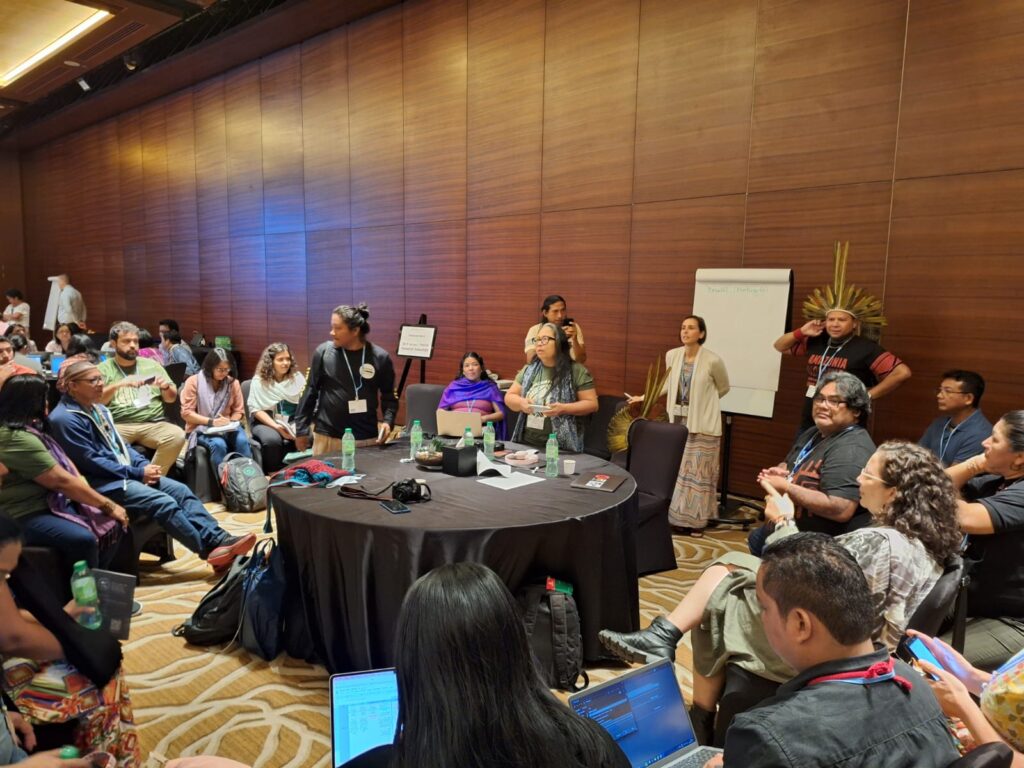
In spite of the questions raised by IWGIA, with more than ten years of experience in overseeing the International Forum of Indigenous Peoples on Climate Change Caucus on Indigenous) and is suitable for close co-president for Latin America and the Caribbean, Sineia groups intersect it also makes a recommendation to the concrete, so that more and more representatives of the brazilian on the platform, to be able to make a difference.
“So incidirmos the best, you have to learn about life and the methodology used for these spaces and technical staff. Sometimes, we want to take too much from us in the basics. This is not forbidden, but you have to know how to do this on a global level. When we talk about the inside, the people do not give much heed. Then you need to learn the methodology of the coach, how to be in these spaces to study for a way to bring the best of our knowledge, did not lose the level of the world, from the small to the large. If you talk to ourselves, we were not able to focus on other countries. The important thing is that we get together with people all over the world, so that we can be one voice,” he said.
* * * The follow-up to the LCIPP/the UNFCCC, is the result of a partnership between the OPAN, in and to the co-operative Network the Amazon (the car), with the support of the Institute for Climate and Society (iCS), and Fastenaktion.
